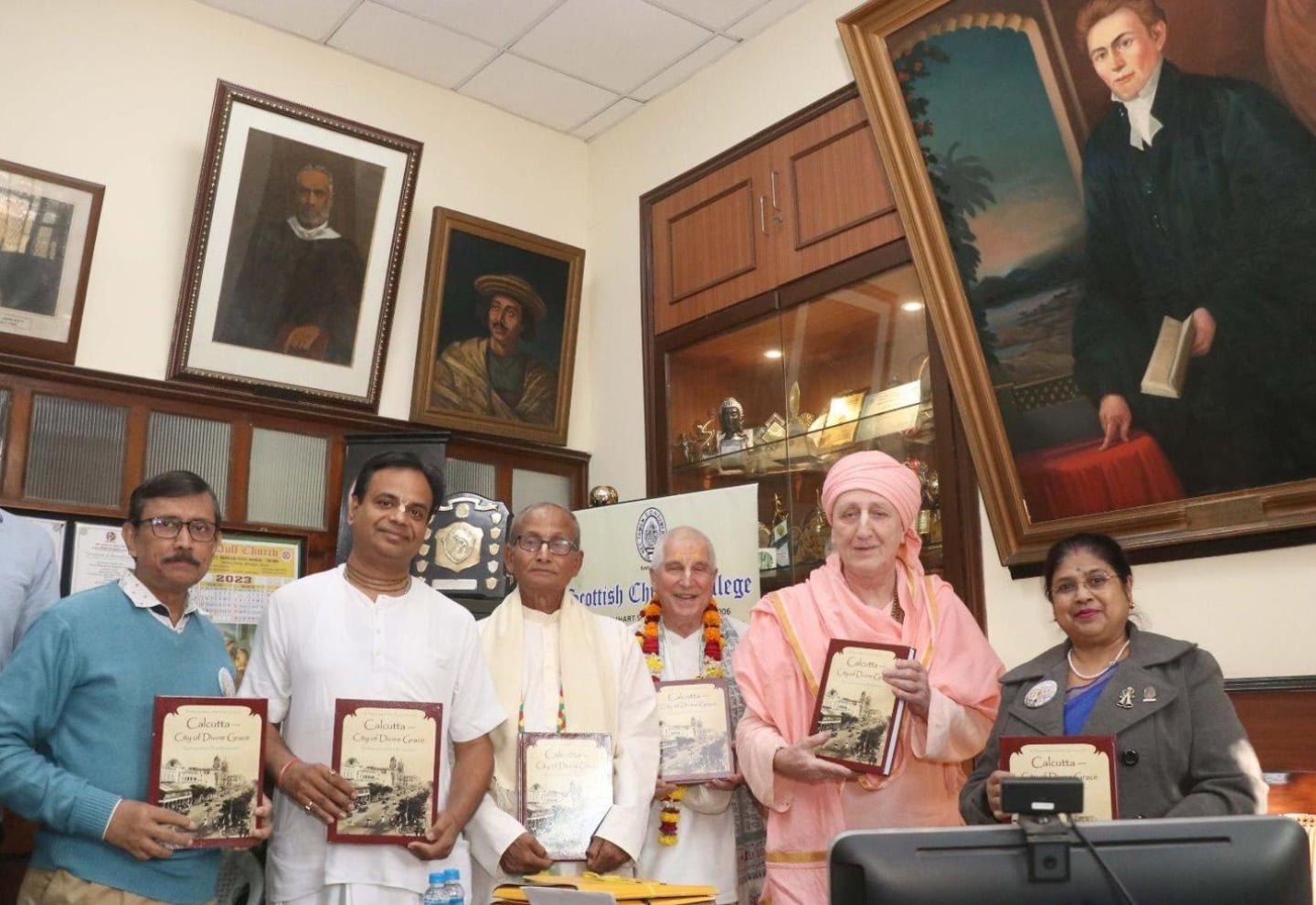Jagannath Temple Reforms Result in Income Increases, Sale of Land
By ZEE News | Jun 06, 2007

BHUBANESWAR, India: Administrative reforms implemented in 2004-2005 by the Sri Jagannath temple in Puri, India, have had a positive effect, with records showing an increase in revenue over the past two years. The temple also intends to dispose of tens of thousands of acres of land that is currently in unauthorized use by others.
"The corpus fund of the temple now has increased to Rs 68.27 crore (680.27 million) from Rs 57.27 crore (570.27 million) which is 4.75 per cent more than the previous year’s deposit," the temple’s chief administrator, Suresh Chandra Mohapatra told the news media on May 27.
Considered by many Hindus to be one of the four holiest places, the temple is revered by Vaishnavas as the home of Krishna in His form of Jagannatha, Lord of the universe. The temple is also the site of many of the pastimes of Lord Chaitanya, a religious reformer who is regarded by Gaudiya (Bengal) Vaisnavas as an avatar (incarnation) of Lord Krishna. Admittance into the temple, however, is restricted to caste Hindus.
The government had introduced the reform process in view of the temple’s poor income and its many irregularities in performing rituals and other activities, particularly during the festivals, he said.
While the expenditure of the temple in 2006-07 was Rs eight crore (80 million), its total income including sale of land amounted to Rs 17 crore. In addition, the temple had collected nearly three kilograms of gold and seven to eight kilograms of silver from devotees during 2006-07, which were included in the temple income.
Mohapatra said several steps were taken under economic, revenue, income, sevayat welfare, infrastructure development, development projects and other spheres have proved beneficial for the temple. The decision to deposit the corpus fund on a long-term basis would certainly generate more funds for the temple, he claimed.
The chief administrator also pointed out that introduction of online donation through ATM during 2006-07 had brought in Rs 10 lakh (one million) for the temple.
A single donation of Rs two crore (20 million) was given in person by a foreign devotee, he added.
As part of the reform, Mohapatra said the administration had decided to dispose off all agricultural land owned by the temple. "We are not getting any return from this property since majority of it is in the possession of people. The temple, on the other hand, is paying land tax," he said.
Revealing that as much as 56,000 acre of land spread across the country was in the name of the temple, Mohapatra said the shrine owned nearly 44 active stone quarries in Orissa which were being auctioned every three years. He said the administration had also decided to sell nearly 1,000 acre of land near Puri that was needed for the campus of the proposed Vedanta University.
"Most of the Lord’s landed property are in possession of other people. We have taken initiative to bring them back," he said.
Official sources said that there were nearly 22,000 acres of land belonging to the temple in Orissa’s 22 districts. While half of the lands were in possession of the temple, others were occupied by people. The administration has decided to offer the same to the people.
Besides, Mohapatra said that the temple also has sought help from different state governments in order to recover its property.












